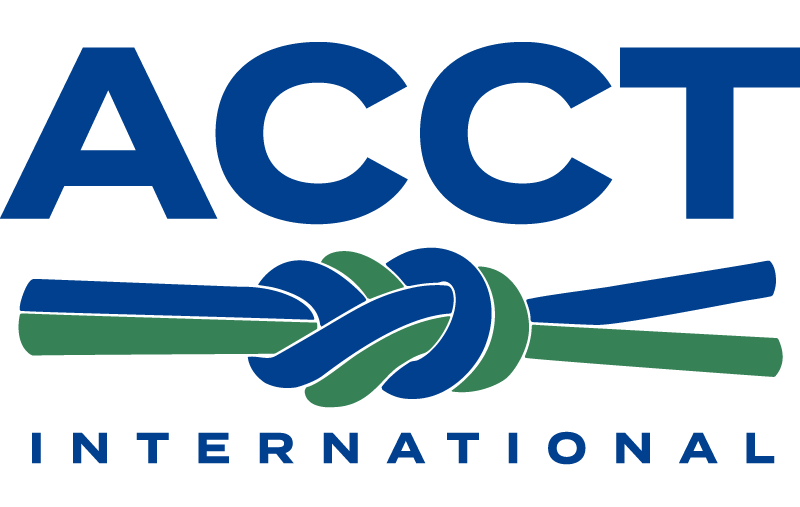Standards Development FAQs
This page contains a collection of the frequently asked questions (FAQs) on the various pages of the Standards section of the website.
ANSI FAQs
ANSI is a private, non-profit organization that administers and coordinates the U.S. voluntary standards and conformity assessment system.
ANSI provides a framework for fair standards development and quality conformity assessment systems. ANSI does not develop standards itself. It accredits standards-developing organizations (SDO) to ensure their procedures meet ANSI’s due process requirements.
Any group that develops and publishes technical standards through a consensus-based process. ANSI accredits SDOs to ensure their procedures meet ANSI's requirements for openness, balance, consensus, and due process. ACCT is an SDO. It is also an Accredited Standards Developer.
An organization, such as ACCT, that has voluntarily submitted its written procedures to ANSI and been accredited by the ANSI Executive Standards Council (ExSC) as meeting the Essential Requirements (ER) for due process and governance in standards development. Accreditation is a prerequisite for submitting documents for approval as an American National Standard (ANS).
A voluntary consensus standard developed by an Accredited Standards Developer (ASD)—like ACCT—in accordance with the ASD’s Accredited Procedures (AP) and the ANSI Essential Requirements: Due process requirements for American National Standards (ER) and subject to ANSI’s neutral oversight and approval. These requirements are designed to ensure that the development of American National Standards is a fair and responsive process that is open to all directly and materially interested parties.
A voluntary consensus standard is a type of standard developed or adopted by voluntary consensus standards bodies through the use of a development process characterized by openness, balance, due process, consensus, and the right to appeals.
Standards Development Process FAQs
- Submit ideas for American National Standards (ANS) Projects and Revisions during Public Solicitation Periods, which ACCT may lead from time to time.
- Submit comments during the PINS Comment Period if they believe the PINS conflicts with or duplicates another American National Standard (ANS) or they require further clarification.
- Participate in ACCT Volunteer Groups that have roles in the Standards Development Process including but not limited to the ACCT Board of Directors (BOD), the Technical Information, Research, and Education Committee (TIRE), Standards Writing Groups, and the Consensus Body.
- Note: Comments received during a Public Review Period that are outside the current Project (PINS) may be considered for future projects.
- Submit ideas for American National Standard (ANS) Projects and Revisions during Public Solicitation Periods, which ACCT may lead from time to time.
- Submit comments during the PINS Comment Period if they believe the PINS conflicts with or duplicates another American National Standard (ANS) or if they require further clarification.
- Submit comments on draft projects during the Public Review Period.
- Participate in ACCT Volunteer Groups that have roles in the ANS Development Process including but not limited to the ACCT Board of Directors (BOD), the Technical Information, Research, and Education Committee (TIRE), Standards Writing Groups, and the Consensus Body.
- Unsolicited feedback, suggestions, and errata submitted to the Accredited Standards Developer (ASD) outside of Public Review Periods, Public Solicitation Periods, or ACCT Events may be reviewed periodically by the Board or staff. Submitters should not expect a response. Unsolicited feedback and suggestions do not constitute a comment under ACCT's Accredited Procedures (AP).
Project Initiation FAQs
ACCT submits a Project Initiation Notification System (PINS) form to ANSI and begins forming a Consensus Body (CB).
ANS Draft Development FAQs
Public Review & Consensus Vote FAQs
Resolution of Comments & Votes FAQs
Appeals Notification FAQs
Final Submission FAQs
Publication FAQs
Materially affected parties are encouraged to:
- Submit ideas for ANS Projects and Revisions during Public Solicitation Periods, which ACCT may lead from time to time.
- Submit comments during the PINS Comment Period if they believe the PINS conflicts with or duplicates another American National Standard (ANS) or they require further clarification.
- Submit comments during Public Review Periods.
- Participate in ACCT Volunteer Groups that have roles in the Standards Development Process, including but not limited to the ACCT Board of Directors (BOD), the Technical Information, Research, and Education Committee (TIRE), Standards Writing Groups, and the Consensus Body (CB).
RESOURCES
NEXT STEPS
ACCT STANDARDS DEVELOPMENT RESOURCES
- ACCT’s Standards Development Process. Learn more about ACCT’s ACCT Standards Development Process. Digital resources, answers to Frequently Asked Questions (FAQs), and information to help you learn when and how to get involved.
- Current ANS Development Project. Learn more about ACCT’s current Standards projects.
- ACCT Board of Directors. View roster, upcoming meetings, ACCT guiding documents, and minutes from previous meetings; register to attend an upcoming Board Meeting.
- ACCT Consensus Body. View roster of the ACCT Consensus Body, view meeting schedule and minutes, register to observe a meeting, and apply to be a Consensus Body Member.
- ACCT Accredited Procedures. Download Procedures for Organization, Development, and Maintenance of Challenge Course Standards by the Association for Challenge Course Technology (ACCT), ACCT’s governing document for ANS Development.
- Frequently Asked Questions. A collection of the Standards FAQs from the pages in this section.
- ANSI Essential Requirements. View and download ANSI Essential Requirements.
- Understanding Standards Development Definitions and Acronyms. A guide to understanding common terminology, abbreviations, and acronyms found in the Standards Development Process.
- Contact the ASD. Submit requests for official interpretation, comments on a draft project, ideas for projects or revisions, and unsolicited feedback, suggestions, or errata.
